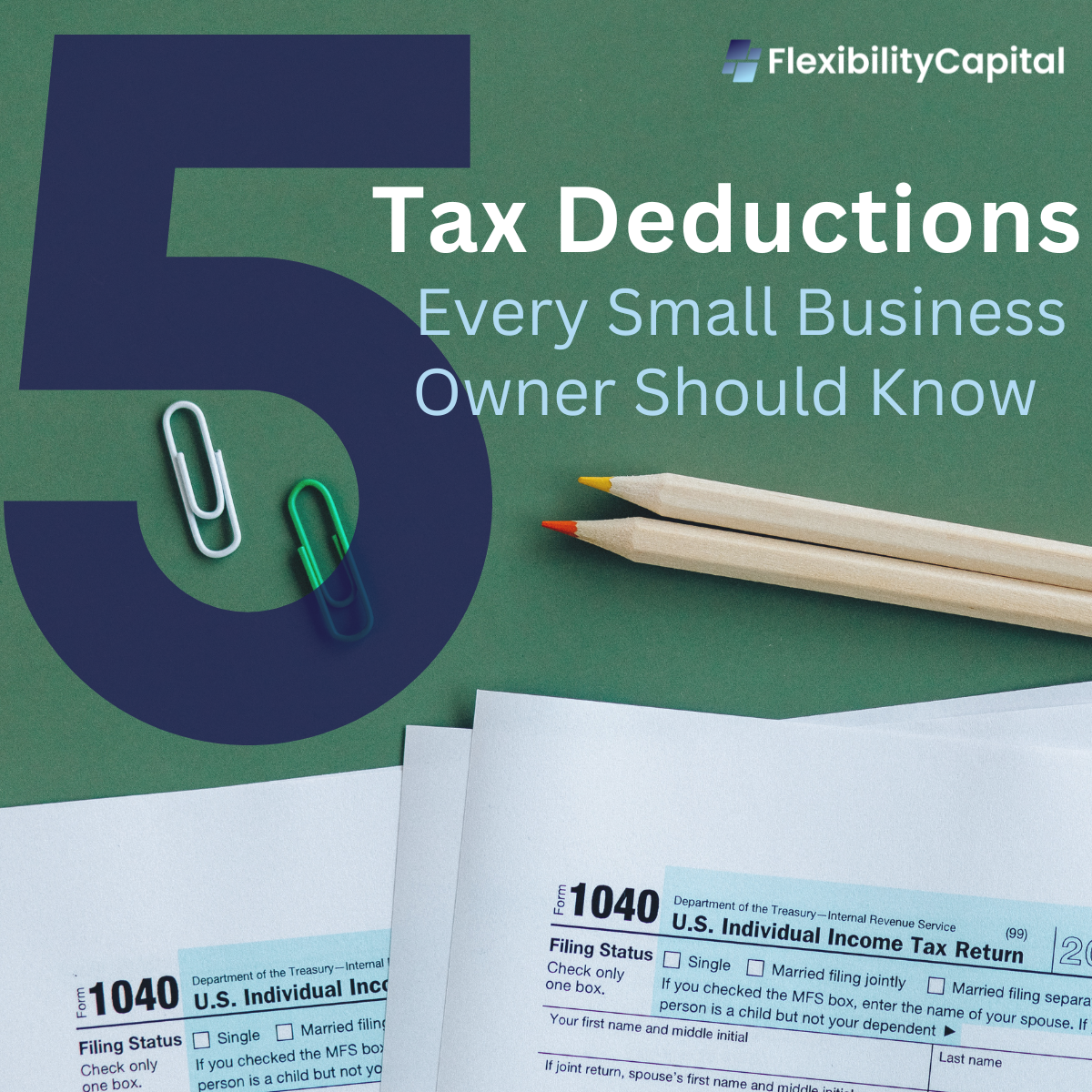What is a Tax Deduction?
Small business tax deductions are specific expenses that can be subtracted from your gross income to lower your taxable income. However, not every expense qualifies for a deduction. The IRS publishes an official list of deductions available to small businesses, so be sure to familiarize yourself with it.
Here are five key deductions every small business owner should know:
1. Home Office Deduction
If you run your business from home, you may qualify for a home office deduction. This allows you to deduct a portion of your rent, utilities, and internet expenses. To qualify, the space must be used exclusively for business. Even a small percentage of your home can result in significant savings!
2. Business Meals
That client lunch or networking dinner isn’t just an opportunity to build relationships—it’s also a deductible expense. You can deduct up to 50% of the cost for business meals, whether you’re discussing a deal over coffee or taking a vendor out for a strategy session. Just be sure to keep your receipts and note the purpose of the meal for your tax records.
3. Marketing & Advertising
Every dollar spent on marketing is tax-deductible! Whether it’s digital ads, social media promotions, printed materials, or branding efforts, these expenses help grow your business and reduce your tax burden at the same time. A win-win situation!
4. Business Vehicle Expenses
If you use a vehicle for business purposes, you can deduct expenses like gas, maintenance, insurance, and even depreciation. You can either track actual expenses or use the IRS mileage rate for this deduction. Either way, it helps offset the cost of running your business on the go.
5. Repairs & Maintenance
For brick-and-mortar businesses, keeping your building in working order is crucial, and repairs and maintenance costs are deductible. This includes things like painting, fixing leaks, or addressing structural issues. Note that major renovations or expansions generally don’t qualify, as they’re considered capital improvements.
How to Pay Less Taxes as a Small Business Owner
Legally reducing your tax liability is essential for maintaining a healthy cash flow. Here are some strategies to lower your taxes as a small business owner:
- Maximize Deductions: Keep track of all deductible expenses, such as office supplies, software subscriptions, and employee benefits.
- Use Tax-Advantaged Retirement Plans: Contributing to a SEP IRA, SIMPLE IRA, or 401(k) for yourself and employees can lower taxable income.
- Time Your Income & Expenses Strategically: Consider deferring income or accelerating deductions before the year-end to manage your taxes.
- Take Advantage of Section 179 Deduction: Deduct the full cost of qualifying equipment purchases instead of depreciating them over time.
By implementing these strategies, small business owners can significantly reduce their tax burden and retain more profits for growth and reinvestment.
Maximizing Deductions & Business Growth
Making smart financial decisions, like taking advantage of tax deductions, can help small businesses thrive. At Flexibility Capital, we understand that managing cash flow can be challenging, especially when tax bills are looming. If you’re feeling tight on working capital and need some extra support to cover expenses like taxes, marketing, or expansion, we’re here to help you stay on track and grow your business.
Disclaimer: The information provided in this blog is for informational purposes only and should not be construed as professional tax advice. Always consult with a qualified tax professional or accountant to ensure that you are in compliance with current tax laws and to determine which deductions and strategies apply to your specific situation. Flexibility Capital is not responsible for any decisions made based on this information.
